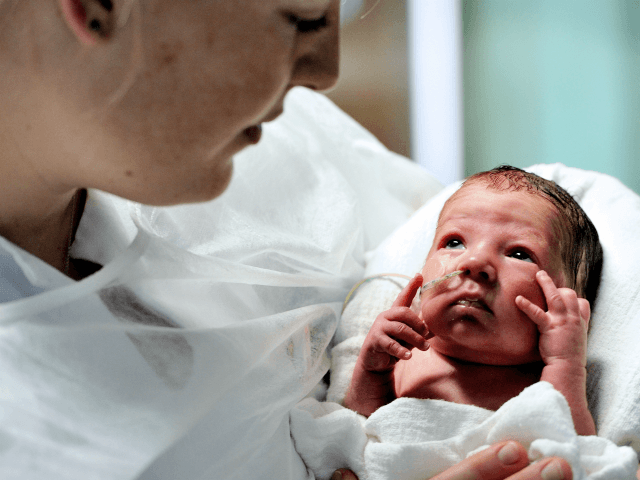Tony Abbott has said conservative governments should do more to help working, middle-class women to have more children because the current birth-rate for that demographic is a “real problem”.
“While I’m all in favour of stay-at-home-mums if that’s their choice, I do think that a properly conservative government, acknowledging that having a family is one of the most wonderful things that anyone can do, would make it easier for women in the workforce to have more kids,” Mr Abbott said at the Centre for Independent Studies in comments reported by The Sydney Morning Herald.
“That is a real problem in every western country: middle-class women do not have enough kids. Women in the welfare system have lots of kids,” Mr Abbott said.
“If you’re very wealthy you can afford to have as many kids as you want,” the former leader of the centre-right Liberal party added, noting it was the squeezed middle-classes struggling most.
If that position sounds extraordinary coming from the former leader of a Western country, that’s because it is. One result of women having fewer children is a slowing or shrinking of the population, but the West has not looked to supporting mothers to solve the problem. Rather, nations like Sweden and Germany have embraced mass migration from the third world to counter their own falling birthrates. In March 2019, statistics revealed that not one EU country’s birthrate was at natural replacement level.
In the UK, August statistics revealed that British birthrates were at their lowest ever on record — however, the population continues to grow, underlying the effect that immigration is having on the demographics of the country. Indeed, deaths of British-born residents last year outstripped births to British-born mothers for only the third time since 1838.
End of Full-time Mums? Over 75 Per Cent of Mothers Now Have to Work https://t.co/EU9A9BahdU
— Breitbart London (@BreitbartLondon) October 27, 2019
The notionally ‘conservative’ British Conservative government has, in previous iterations, failed to articulate in policy to support working women who want to be mothers. Rather, Tory former Prime Minister David Cameron’s gift to British women was to prioritise encouraging mothers back into paid employment by offering them 30 hours a week “free” (or rather, taxpayer-funded) childcare, rather than finding means to encourage women who are not wealthy to take up the option of being full-time carers to their children.
Indeed, the Office for National Statistics revealed in October that over 75 per cent of mothers have to work in the UK. Stay-at-home motherhood is strongly disincentivised in Britain due to changes in recent decades to the tax, pension, and child benefit systems, which have made it all but unaffordable to not return to work for most.
In central Europe, however, conservatism is expressed in terms of social conservatism, rather than fiscal, and it is where motherhood is afforded a value greater than that of paid employment.
Hungary and Poland have, like the rest of Europe, experienced a falling birthrate; but rather than looking to mass migration to solve a future shrinking population, they seek to encourage their men and women to make their own citizens.
Hungary Backs ‘Europe of Families’, Not ‘Europe of Migrants’ https://t.co/Qr6sXfMNTm
— Breitbart London (@BreitbartLondon) February 28, 2019
In the last 12 months, Hungary introduced tax and other financial assistance to incentivise Hungarians to have more children. Such measures included exempting women who have had four or more children from income tax for the rest of their lives; loans to women under 40 who marry for the first time, with the loan written off after the birth of a third child; and free IVF.
Poland also introduced a maternal pension in recognition of “mothers and grandmothers who have devoted their lives to bringing up children” and who deserve the “gratitude and respect” of Polish society.
Speaking early last year, Hungarian Prime Minister Viktor Orbán stated the country’s rationale for backing such measures over mass migration.
“In our minds, immigration means surrender,” Mr Orbán said, continuing: “If we resign ourselves to the fact that we are unable to sustain ourselves even biologically, by doing so we admit that we are not important even for ourselves.”
Italy’s Salvini Wants More Babies, Fewer Migrants: ‘A Country Which Does Not Create Children is Destined to Die’ https://t.co/JDjWgcTsUB
— Breitbart London (@BreitbartLondon) July 29, 2018

COMMENTS
Please let us know if you're having issues with commenting.